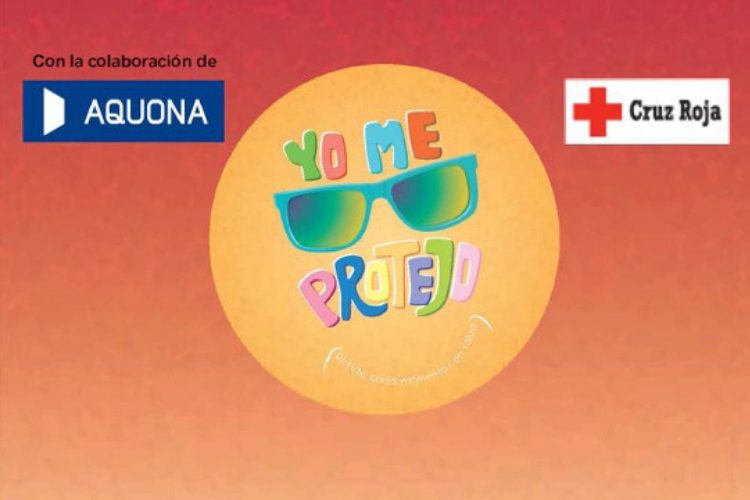Aquona and the Spanish Red Cross in Castile and León jointly launched a prevention campaign
Given the high temperatures, Aquona and the Red Cross have provided simple guidelines for preventing problems related with heat waves

Given the high temperatures, Aquona and the Red Cross have provided simple guidelines for preventing problems related with heat waves.
Weakness, fatigue, headaches, lack of appetite, insomnia or cramps are some of the negative effects of high temperatures on our health. They can have a major impact on young and elderly people in particular.
In normal conditions, when it is hot, the internal thermostat in our bodies produces sweat, which evaporates to cool us down. Days of intense heat force our bodies to make an effort to adapt to maintain a normal temperature. High temperatures can have a series of negative effects on our health, such as cramps, dehydration, sunstroke or heatstroke, which are of particular concern among children and elderly people.
Heat does not affect all people equally. The most vulnerable are:
- Elderly people (especially those that live alone or are dependent).
- Children (especially aged under 4 years).
- People with chronic illnesses and people in treatment.
- People with learning difficulties, orientation difficulties, little autonomy in daily life and people with alcohol or drug problems.
To reduce problems due to high temperatures, the Spanish Red Cross and Aquona have provided simple guidelines for daily life to be able to enjoy the heat and the summer more safely in the campaign: Yo me protejo ante el calor (I protect myself from heat).
Outdoors (in the street, in the countryside, etc.):
You should stay in the shade, protect yourself from the sun (with sunglasses and a hat), hydrate yourself frequently and avoid as far as possible undertaking activities at times when temperatures are highest.
In the home:
Stay in the coolest rooms and close shutters, put up awnings, etc., so that the sun does not enter the house directly.
In the car:
Never leave children or elderly people inside a closed vehicle. Take liquids for hydration and take particular care with the dramatic changes in temperature when you get in and out of a vehicle.
At personal level:
Be ready to wash and hydrate yourself continuously, wear light clothing in light colours and comfortable, cool shoes.
At meal times:
Eat light meals (fruits, salads and vegetables, etc.) and drink abundant liquids (water, juices, etc.), as long as you have no medical contraindications.
If you have a health problem:
Consult your doctor about additional measures that you should adopt if you have an illness that puts you at risk. Continue to take your medication. Do not self-medicate.
If you are going to be exposed to the sun:
Use the right sunscreen and apply it generously 30 minutes before leaving the house; reapply regularly. Protect your head and neck and use sunglasses to protect against UV and visible radiation. Avoid the use of sensitising products (alcohol-based perfumes).
If you feel ill due to the heat, stop the activity and try to move to a cool place and ask for help.
Before you jump into water:Check how deep the water is in the area, jump with your arms out, take additional precautions in rivers and reservoirs, avoid water outlet areas, watch over the youngest and avoid consumption of alcohol and drugs.
On social media, various actions have been undertaken to disseminate the advice using the hashtags #consejosverano #YoBeboAguaDelGrifo #hidratación #SaludYprevención
This initiative is part of a collaboration agreement between the two entities to promote and support the work of the Red Cross to benefit those most vulnerable.
AUDIOVISUAL RESOURCES
HEAT WAVE ADVICEBefore the start of the summer, the Red Cross provides simple advice to prevent problems associated with high temperatures.
LIST OF TIPS FOR HEAT WAVES:Health problems associated with high temperatures cannot be avoided. The following video provides some tips to consider when it gets hot.